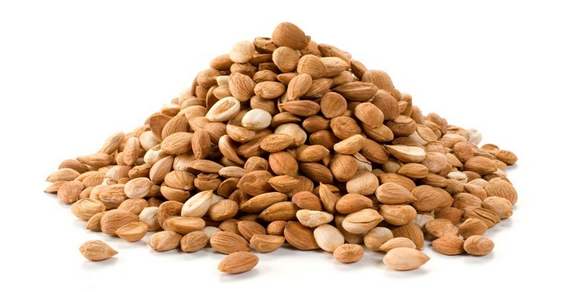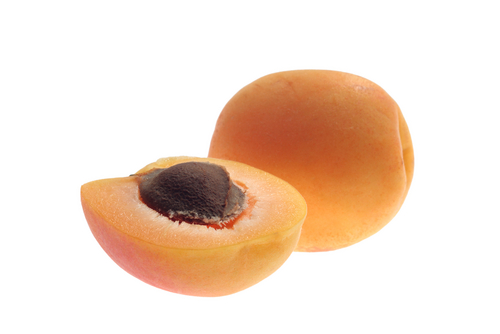Are apricot seeds a powerhouse of health benefits, much like their fruits, or do they present health risks and should be avoided? Let's try to clarify this food that is as fashionable as it is discussed.
Don't store avocado like this: it's dangerousI apricot seeds are they a concentrate of health benefits, a bit like their fruits, or do they present health risks and should be avoided? Let's try to clarify this food that is as fashionable as it is discussed.
The populations of Pakistan, practically for centuries, have resorted to apricots and their seeds (it is not the big and hard stone but the smaller one that is inside) as natural remedies for health care. The Hunza people would be the greatest user and connoisseur of the beneficial properties of apricot seeds, as well as of the oil obtained from them and dried fruits.
The greatest benefits attributed to these seeds would concern the anti-cancer properties. It has in fact been observed that in Pakistan, as far as the Hunza people are concerned, diseases such as cancer are almost unknown, as well as the common diseases of well-being that afflict Westerners. But is it really due to the consumption of apricot seeds?
According to this culture, apricot seeds would be a real one long life elixir. Their usefulness in fighting cancer was also known in ancient China, as well as in the Middle East. In fact, gods have been found papers attributed to Emperor Shen Nung and dating back to the XNUMXst-XNUMXnd century BC, in which recipes obtained from apricot seed extract were reported and considered a valid help against tumors.

Index
Does Vitamin B17 have anti-cancer properties?
The secret contained in apricot seeds would be found in the content of vitamin B17, also known as laetrile, amygdalin or nitriloside. For some it is a substance capable of inhibit the development of tumors and their metastases but science does not actually support this theory.
According to the admirers of these seeds, however, vitamin B17, in the presence of diseased cells, would act by releasing cyanide, capable of destroying them. In fact, cancer cells contain a particular enzyme, absent in healthy cells, which allows the activation of the anti-cancer action of vitamin B17.
Cancer would be a disease almost unknown to populations who follow a diet rich in vitamin B17. In addition to apricots, accompanied by the intake of their seeds, vitamin B17 is contained in legumes such as broad beans or peas, in the sprouts of legumes and cereals, in alfalfa, in lettuce, in turnips and in other vegetables and berries.
On the other hand, in recent years, these properties have been significantly downsized. Indeed, several studies have stated that there is no positive effect as an anticancer.

Are apricot seeds poisonous? What does EFSA think
A few years ago, EFSA (European Food Safety Authority) also expressed its opinion on apricot seeds, warning consumers that there is an effective risk of poisoning. As stated in their press release:
“Consuming more than three small raw apricot kernels, or less than half a large seed at a time, can push the boundaries of safety. Small children who consume even a small apricot seed risk exceeding the safety limit. "
The problem is that in apricot seeds there is a compound of natural origin, amygdalin which, once hired, in our organism it turns into cyanide, a powerful poison which can cause nausea, fever, headache, insomnia, thirst, lethargy, nervousness, pain in joints and muscles, sudden drop in blood pressure and, in more serious cases, lead to death.
It is generally believed that between 0,5 and 3,5 milligrams (mg) of cyanide per kg of body weight is a life-threatening dose. However, EFSA has significantly lowered the dose, believing that the safety limit for occasional exposure is 20 micrograms per kilogram of body weight (25 times less than the lowest dose considered potentially lethal).
As a result of all this, the European authority has limited the import of these seeds from Asian countries, leading to the adoption of a new regulation for the sale of these food products.
As EFSA reminds us, however, there is no risk if the apricot fruit is consumed, all the potential poison content is in fact contained in the seed.
Intake and contraindications
How many apricot seeds can be consumed per day? Ernst T. Krebs, the author of the anti-cancer studies, argued that 7 apricot kernels, taken daily, would be the ideal amount throughout a lifetime. But in reality, as we have explained to you, this quantity is nowadays highly discouraged by most experts because of the excessive quantity of poison contained in these seeds.
The major ones contraindications of apricot seeds it's their own cyanide content. Previously it was believed that in order to consume an amount of cyanide that could be fatal, depending on weight and height, an individual would have to eat 80 to 560 apricot kernels a day, disproportionate to consuming apricot kernels such as food supplements. Now, however, this point has been greatly reduced and even a much smaller quantity of these seeds is believed to cause even serious side effects.
If you want to taste it, you should limit yourself to the consumption of 1 or 2 apricot seeds and should be hired accompanied by fresh or dried fruit, since the enzymes contained in the fruit itself are considered as components of their mechanism of action.
Bitter apricot seeds
Vitamin B17 is present in greater quantities in bitter apricot seeds than sweet apricot seeds. Apricot seeds are very reminiscent of almonds in appearance and shape. The bitter seeds come from wild apricots, with a sour taste, while the sweet seeds are obtained from fresh and ripe fruits that we commonly find for sale. The apricot seeds, after being extracted from the fruits, are subjected to drying.
Where to find apricot seeds
Apricot seeds can be purchased in herbalists (where it should be possible to order them if not available), in organic food shops, or in the shop online dedicated to the world of organic and natural.
READ also:
- Apricots: calories, properties and health benefits
- 5 fruit trees to grow from seed
- Homemade apricot jam without added sugar
Marta Albè


























